Advice to My Younger Writer Self: An Author Roundtable

An author’s journey is a particularly twisty one. Amidst the drafts, re-writes, readings, and even seeded somewhere within that first fragment of an idea is the constant development of their craft. Book*hug asked eight of our authors to take a trip into the past for writing tips they would give their younger writer selves to assist them in that journey.
The authors featured in this roundtable contribute a variety of subjects and styles to their work, and Book*hug is excited to share their wonderful insights. Introducing: Jordan Tannahill (The Videofag Book), Aaron Tucker (Irresponsible Mediums), Fenn Stewart (Better Nature), Hana Shafi (It Begins With The Body), Alex Leslie (We All Need To Eat), Jennifer LoveGrove (Beautiful Children with Pet Foxes), Shannon Bramer (Precious Energy), and Andrew McEwan (If Pressed).
Without further delay, and with no risk to the space-time continuum, read on to hear what this group of authors have learned over the course of their writing journeys.
❧
What is one piece of advice you would give your young writer self?
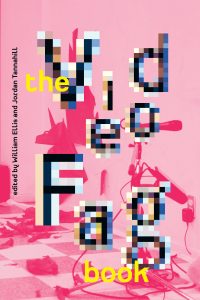
Jordan Tannahill: One piece of advice for my younger self: ‘Read more old books. Especially ones by your queer ancestors.’
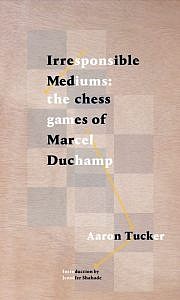 Aaron Tucker: I sometimes get this question and it always makes me ask “how young?” I imagine a string of Aarons stretching back, all toodling away at their own weird business, not looking to be interrupted, until I interject – “Howdy young-writer selves.” “Howdy” they would answer back. If I was talking to my Grade 3 writer-self, the one who filled up booklets with long semi-mythic narratives that he would also illustrate, I would tell him that the world is really big, much larger than the valley he was born in, and plead with him to learn another language while that type of learning is easier, so that he would have a better sense of how sentences and phonetics work later on; if I was talking to the writer-self working through his Masters in Creative Writing at Windsor, the one writing a lot, too much, I would probably urge him to not think of writing as energy and ideas and lifestyle, to be a bit less reckless and a bit more careful, in his editing especially, to put three times as much time into revision as the writing itself, and to make choices that require five minutes, five hours, five days of consideration, rather than five seconds; if I was speaking to my late 20s writer-self, the one not writing, I would be my most gentle, would tell him to keep going to therapy and that just because he wasn’t writing then, or going out with old friends, didn’t mean he wouldn’t be writing again, that those friends, and new friends too, would be there if he just spent a bit of time on himself, and that his writing, when he was ready and able to come back to it, would be better for it; if I was talking to my yesterday writer-self, I think I would remind him that he was out of dish soap, that maybe he should write himself a grocery list.
Aaron Tucker: I sometimes get this question and it always makes me ask “how young?” I imagine a string of Aarons stretching back, all toodling away at their own weird business, not looking to be interrupted, until I interject – “Howdy young-writer selves.” “Howdy” they would answer back. If I was talking to my Grade 3 writer-self, the one who filled up booklets with long semi-mythic narratives that he would also illustrate, I would tell him that the world is really big, much larger than the valley he was born in, and plead with him to learn another language while that type of learning is easier, so that he would have a better sense of how sentences and phonetics work later on; if I was talking to the writer-self working through his Masters in Creative Writing at Windsor, the one writing a lot, too much, I would probably urge him to not think of writing as energy and ideas and lifestyle, to be a bit less reckless and a bit more careful, in his editing especially, to put three times as much time into revision as the writing itself, and to make choices that require five minutes, five hours, five days of consideration, rather than five seconds; if I was speaking to my late 20s writer-self, the one not writing, I would be my most gentle, would tell him to keep going to therapy and that just because he wasn’t writing then, or going out with old friends, didn’t mean he wouldn’t be writing again, that those friends, and new friends too, would be there if he just spent a bit of time on himself, and that his writing, when he was ready and able to come back to it, would be better for it; if I was talking to my yesterday writer-self, I think I would remind him that he was out of dish soap, that maybe he should write himself a grocery list.
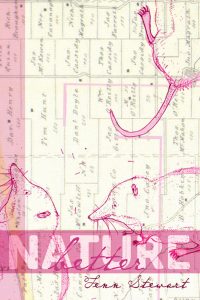 Fenn Stewart: My younger-writer self was very worried that people who write or make art do so because they are inhabited by the firm conviction that what they are doing is necessary (to them, to the world, etc). Not having that conviction, I thought I probably better stay out of it. Then, while we were in Lithuania, my friend Andrew helpfully explained that actually people write or make art just because they want to. That is enough of a reason. So actually I don’t need to give my younger-writer self any advice — Andrew did so for me.
Fenn Stewart: My younger-writer self was very worried that people who write or make art do so because they are inhabited by the firm conviction that what they are doing is necessary (to them, to the world, etc). Not having that conviction, I thought I probably better stay out of it. Then, while we were in Lithuania, my friend Andrew helpfully explained that actually people write or make art just because they want to. That is enough of a reason. So actually I don’t need to give my younger-writer self any advice — Andrew did so for me.
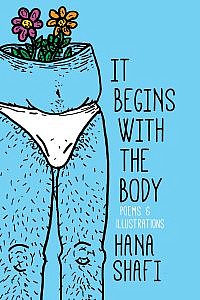 Hana Shafi: I would tell my young-writer self to value herself, to not feel embarrassed or shy about having big, seemingly unattainable dreams, to know that she has stories worth telling, and dreams worth fighting for.
Hana Shafi: I would tell my young-writer self to value herself, to not feel embarrassed or shy about having big, seemingly unattainable dreams, to know that she has stories worth telling, and dreams worth fighting for.
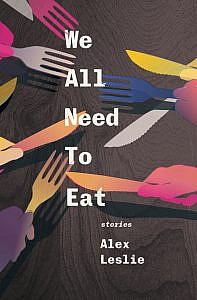 Alex Leslie: The advice I would give to my younger writer self is that writing takes time — a lot of time. Not only time to write, but time for ideas and stories to grow and deepen. My current book took about five years to write, and some of the material goes further back than that — it’s almost impossible to say “how long” it takes for me to finish something. I felt a lot of pressure when I was starting out to publish in journals and write a great deal; over time I have learned to be more patient with the process, and to aim for slowly developing longer term projects. The work I’m happiest with is the work that took years to complete, moving through different drafts and iterations. If you’re a young writer starting out, you might feel pressure to publish and get started, but the truth is that time is on your side — to nurture and deepen your craft. My other bit of advice is to write in more than one genre. I publish books of poetry and fiction and used to feel this made me difficult to place within CanLit, but now I feel that the genres inform each other and it gives me built-in breaks and also lots of different people to talk to!
Alex Leslie: The advice I would give to my younger writer self is that writing takes time — a lot of time. Not only time to write, but time for ideas and stories to grow and deepen. My current book took about five years to write, and some of the material goes further back than that — it’s almost impossible to say “how long” it takes for me to finish something. I felt a lot of pressure when I was starting out to publish in journals and write a great deal; over time I have learned to be more patient with the process, and to aim for slowly developing longer term projects. The work I’m happiest with is the work that took years to complete, moving through different drafts and iterations. If you’re a young writer starting out, you might feel pressure to publish and get started, but the truth is that time is on your side — to nurture and deepen your craft. My other bit of advice is to write in more than one genre. I publish books of poetry and fiction and used to feel this made me difficult to place within CanLit, but now I feel that the genres inform each other and it gives me built-in breaks and also lots of different people to talk to!
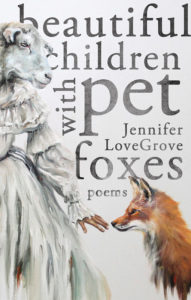 Jennifer LoveGrove: Develop a solid writing practice and be disciplined. Schedule the time for it, and don’t wait to “feel into it” or “be inspired.” Treat it like a job and show up every day, or if paid work prevents daily writing, at least every week. Get up early if you have to, don’t wait until you have some great idea, just sit down and get to work. I developed that attitude over time, but sometimes I wish I had been more disciplined when I was younger. I always worked a lot of jobs and had various other creative projects and I didn’t always prioritize the writing as much as I should have. I also resent the word “should” and had a big sign over my desk about avoiding “should” and “just.” But the more you write, the more you develop, so let’s not be precious and romantic about it, no mysterious forces are going to descend, just do the work.
Jennifer LoveGrove: Develop a solid writing practice and be disciplined. Schedule the time for it, and don’t wait to “feel into it” or “be inspired.” Treat it like a job and show up every day, or if paid work prevents daily writing, at least every week. Get up early if you have to, don’t wait until you have some great idea, just sit down and get to work. I developed that attitude over time, but sometimes I wish I had been more disciplined when I was younger. I always worked a lot of jobs and had various other creative projects and I didn’t always prioritize the writing as much as I should have. I also resent the word “should” and had a big sign over my desk about avoiding “should” and “just.” But the more you write, the more you develop, so let’s not be precious and romantic about it, no mysterious forces are going to descend, just do the work.
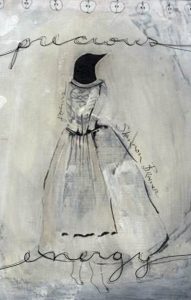 Shannon Bramer: Writing is just like your body, I would tell my younger self. You are alive and your life is your writing. For you, words and images are as important as food and water. And time is like love. You need that, too. But you can’t find it; you can’t wait for it. And no-one will ever give you time. You have to make it for yourself, the way an artist who loves trees draws trees, whether she sees them outside or not, they are inside her.
Shannon Bramer: Writing is just like your body, I would tell my younger self. You are alive and your life is your writing. For you, words and images are as important as food and water. And time is like love. You need that, too. But you can’t find it; you can’t wait for it. And no-one will ever give you time. You have to make it for yourself, the way an artist who loves trees draws trees, whether she sees them outside or not, they are inside her.
 Andrew McEwan: When I asked this question as a young writer both Lisa Robertson and Kit Robinson gave the same answer: read, read a lot, read widely. It’s hard to argue with the advice of two writers I deeply respect and who’ve influenced my work in so many ways. I’d add that I’d tell myself to read things that make me uncomfortable, aren’t written for me, that speak to struggles I am privileged not to face. Those types of reading experiences put things into perspective and make one reflect on the forms others choose for their different messages.
Andrew McEwan: When I asked this question as a young writer both Lisa Robertson and Kit Robinson gave the same answer: read, read a lot, read widely. It’s hard to argue with the advice of two writers I deeply respect and who’ve influenced my work in so many ways. I’d add that I’d tell myself to read things that make me uncomfortable, aren’t written for me, that speak to struggles I am privileged not to face. Those types of reading experiences put things into perspective and make one reflect on the forms others choose for their different messages.
I’d also tell myself to give things more time, to not rush towards the goal of publication. It is a bad arbiter of value and success. Having a solid and ongoing practice is far more important.
❧
About the Authors
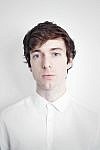
Credit: Lacey Creighton
Jordan Tannahill is a Governor General’s Literary Award winning playwright, filmmaker and theatre director. He is the co-editor of The Videofag Book, as well as the author of Theatre of the Unimpressed: In Search of Vital Drama and Liminal.
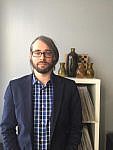
Credit: Julia Polyck O’Neill
Aaron Tucker is the author of four books, including, Irresponsible Mediums: The Chess Games of Marcel Duchamp In addition, he is a professor in the English department at Ryerson University.
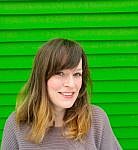
Credit: Anton Nonin
Fenn Stewart lives in Vancouver, where she teaches literature, writing, and research. Better Nature is Stewart’s first book of poetry.
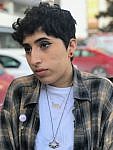
Credit: Dylan van den Berge
Hana Shafi is a writer and artist who illustrates under the name Frizz Kid. Both her visual art and writing frequently explore themes such as feminism, body politics, racism, and pop culture with an affinity to horror. Her first book, It Begins With The Body, is forthcoming from Book*hug in Fall 2018.
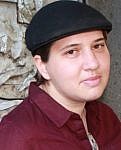
Credit: Lorraine Weir
Alex Leslie was born and lives in Vancouver. She is the author of the short story collection People Who Disappear, and a collection of prose poems, The things I heard about you. Her next book, We All Need to Eat, is forthcoming in from Book*hug in Fall 2018.
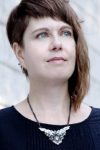
Credit: Sharon Harris
Jennifer LoveGrove is the author of the Giller Prize–longlisted novel Watch How We Walk, as well as three poetry collections, including Beautiful Children with Pet Foxes. She divides her time between downtown Toronto and rural Ontario.
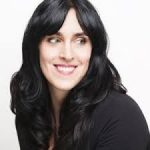
Credit: Linda Marie Stella
Poet and playwright Shannon Bramer lives in Toronto. Previous collections of poetry include: suitcases and other poems, scarf, and The Refrigerator Memory. Her most recent book, Precious Energy, is her first full-length collection in over a decade.

Credit: Holly McEwan
Andrew McEwan is the author of repeater (a finalist for the 2013 Gerald Lampert Memorial Award) and If Pressed. Originally from Bright’s Grove, Ontario, he now lives in St. Catharines.

